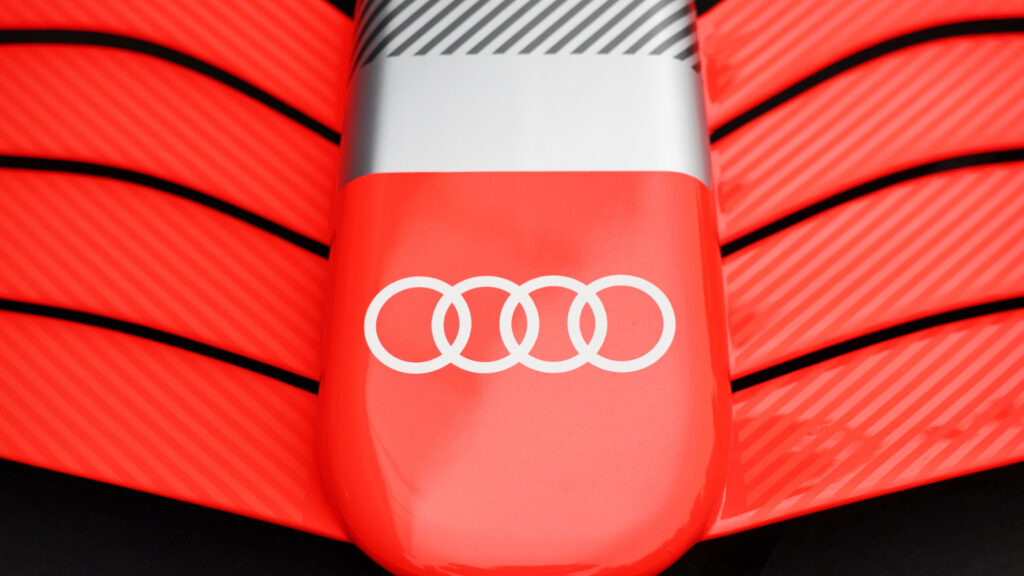BREAKING: Audi Reaffirms Long-Term Commitment to F1 Despite… Exit as….Read more

Audi Reaffirms Long-Term Commitment to F1 Despite Renault’s Exit as Engine Supplier
Audi has made it clear that Renault’s recent decision to exit Formula 1 as a power unit manufacturer will not affect its own plans to enter the sport. Renault, through its F1 team Alpine, recently announced that it will cease producing engines for the upcoming 2026 regulations, opting instead to become a customer team. While this move will see the French manufacturer bow out of the powertrain market, Audi is preparing to make its debut as a works team, along with Ford, which has partnered with Red Bull.
Gernot Dollner, Audi’s CEO, has emphasized that Renault’s withdrawal has had no impact on Audi’s commitment to its F1 venture. When asked whether the news prompted any internal discussions about halting their entry into the sport, Dollner was unequivocal: “No, that was not part of the discussion.”
Audi faces the challenge of developing a new engine in time for the 2026 season, while also managing a partnership with Sauber, a team that has yet to score a single point in 2024. Nonetheless, Dollner insists that Audi is fully committed to the long-term project and is on track to take complete control of the Sauber team in the near future.
Audi’s commitment is evident in its strategic steps to assume full ownership of Sauber. Dollner confirmed that as of January 1, 2025, Audi will officially own 100 percent of the team’s shares, marking a significant milestone in their Formula 1 journey. The move aligns with Audi’s broader vision to become a dominant force in the sport, as the German automaker will oversee both the chassis development and engine construction under one roof.
In 2025, Audi will also complete the full integration of its F1 operations, and Dollner himself will take on a more hands-on role in overseeing the project as the chairman of Sauber’s board of directors. This leadership shift highlights Audi’s dedication to ensuring that their Formula 1 entry is not just a short-term experiment, but a sustained endeavor to succeed at the highest level of motorsport.
Despite the hurdles Audi faces—particularly the steep learning curve involved in developing a competitive power unit from scratch—the brand remains undeterred. The project involves building a new engine, which must meet the 2026 regulations that focus on more sustainable energy and advanced hybrid technology. Competing against well-established rivals like Mercedes, Ferrari, and Red Bull Powertrains will be no easy feat, but Audi’s technical prowess and resources are expected to help bridge the gap over time.
Meanwhile, Renault’s decision to step back as an engine supplier is a significant shift in the F1 landscape. Alpine, Renault’s works team, will now rely on external suppliers for its power unit, marking the end of Renault’s direct involvement in the engine-building side of the sport. This withdrawal means Renault will no longer be competing in the high-stakes engine development race, but will instead focus on optimizing their partnership with whichever supplier they choose going forward.
With Ford also entering the sport in collaboration with Red Bull, Formula 1 is set for a shake-up in the power unit market. The 2026 regulations, aimed at improving efficiency and sustainability, will introduce new technical challenges, and Audi is expected to play a significant role in shaping the future of the sport as both a manufacturer and team owner.
As Audi gears up for its F1 debut, its takeover of Sauber and continued investment in engine development signal that the German giant is in it for the long haul. The future of Formula 1 will undoubtedly be shaped by the upcoming changes, and Audi is positioning itself to be a key player in this new era, despite the departure of other established names like Renault from the engine market.





